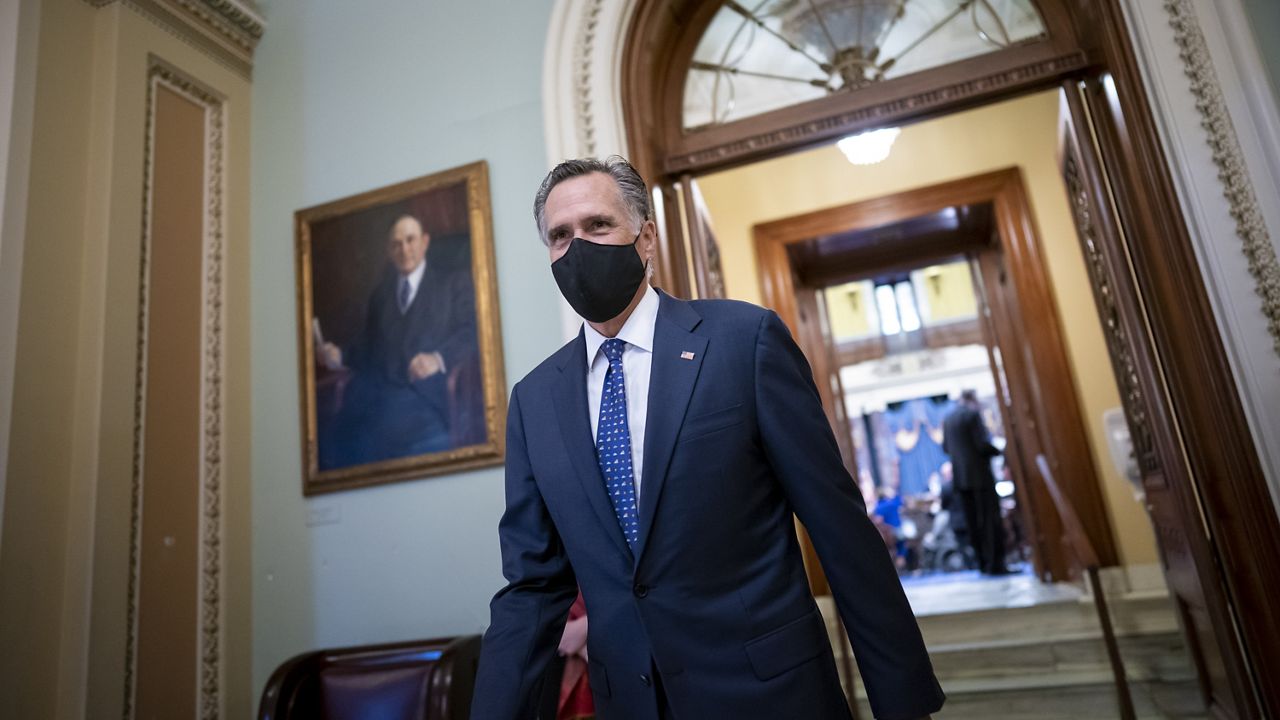Utah Sen. Mitt Romney plans to introduce a bill to provide up to $350 per month per child for millions of American families, signaling bipartisan support for one of President Joe Biden's key initiatives from his $1.9 trillion COVID-19 relief bill: slashing child poverty in the United States.
Sen. Romney will introduce The Family Security Act, possibly as soon as Thursday night as an amendment to the Democrats’ budget resolution, which would provide a monthly cash benefit for American families, "amounting to $350 a month for each young child, and $250 a month for each school-aged child."
"We have not comprehensively reformed our family support system in nearly three decades, and our changing economy has left millions of families behind," Romney said in a statement. “Now is the time to renew our commitment to families to help them meet the challenges they face as they take on most important work any of us will ever do — raising our society’s children."
"American families are facing an extraordinary amount of financial strain, worsened by the COVID-19 pandemic," an overview explaining the bill's components reads. "Marriage and birth rates in the United States have both steadily fallen to all-time lows. Yet, the average desired family size has remained stable for the last 40 years. Our family support and welfare system has not seen comprehensive reform since 1996, while the modern economy has left families further behind."
"The Family Security Act creates a new national commitment to American families by modernizing and streamlining antiquated federal policies into a monthly cash benefit," the overview continues. "Expecting parents will receive the benefit mid-pregnancy, helping them tackle the expenses that start on day one. If enacted, low-income families would no longer have to choose between a bigger paycheck or eligibility for support. This plan would immediately lift nearly three million children out of poverty, while providing a bridge to the middle class – without adding a dime to the federal deficit."
Biden made poverty and inequality a major focus when he first announced the American Rescue Plan in mid-January, specifically noting that his economic plan would "lift 12 million Americans out of poverty and cut child poverty in half."
"That’s 5 million children lifted out of poverty," he said in a speech announcing the plan prior to his inauguration.
Democrats are currently drafting legislation that would provide $3,600 annually for children up to 6, with $3,000 for children 6-17; Romney's plan would provide $4,200 annually up to 6, with the same amount for children 6-17.
The plan Romney introduced could give Democrats a path toward garnering bipartisan support into its relief package, even as they forge ahead with the budget reconciliation process, which would allow for Biden's plan to pass without Republican support. Romney is one of 10 Republicans who proposed a more modest counter to Biden's plan and met with the president to discuss a bipartisan compromise, but it is unclear how much support The Family Security Act will receive from Republicans or Democrats.
Romney's plan would be paid for in part by eliminating the Temporary Assistance for Needy Families welfare program, which would likely draw opposition from Democrats.
An analysis from the Niskanen Center, a moderate think tank, says that Romney's plan would cut child poverty by a third, as well as "deep child poverty" by half; but the Niskanen Center's analysis also notes that Biden's proposed one-year child tax credit would have a larger effect. However, Congress could make Romney's plan permanent through the reconciliation process.
Economist Ernie Tedeschi, who worked in the Treasury Department during the Obama Administration, told the Washington Post that the Utah Senator's proposal "shows that there’s substantial bipartisan agreement around expanding child benefits."
"A permanent expansion along the lines of what Senator Romney or President Biden have proposed would be among the most pro-family, anti-poverty policies in a generation," Tedeschi added.
Romney's plan would call for specific income thresholds, decreasing at $200,000 annually for single tax filers, as well as $400,000 for couples.



